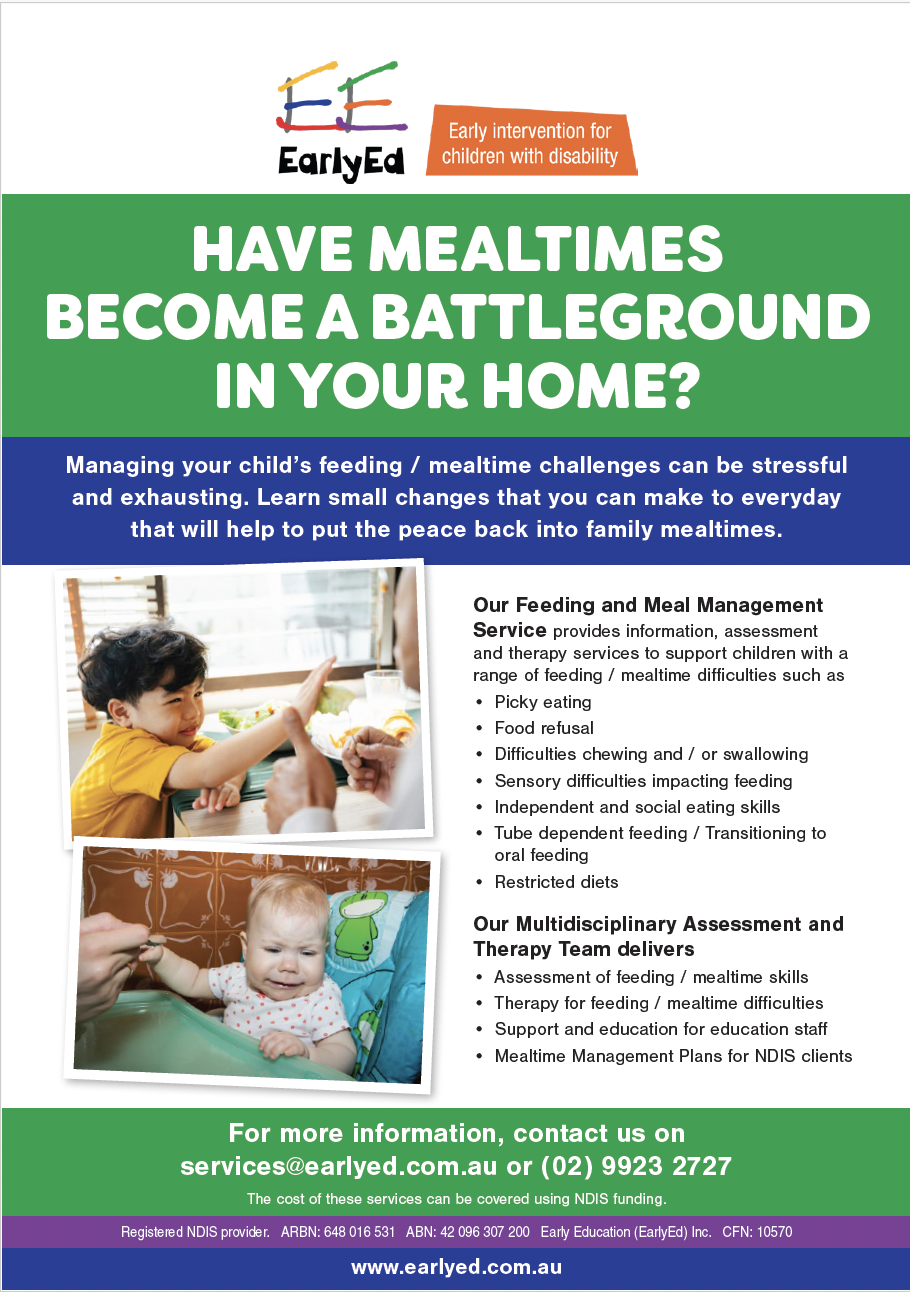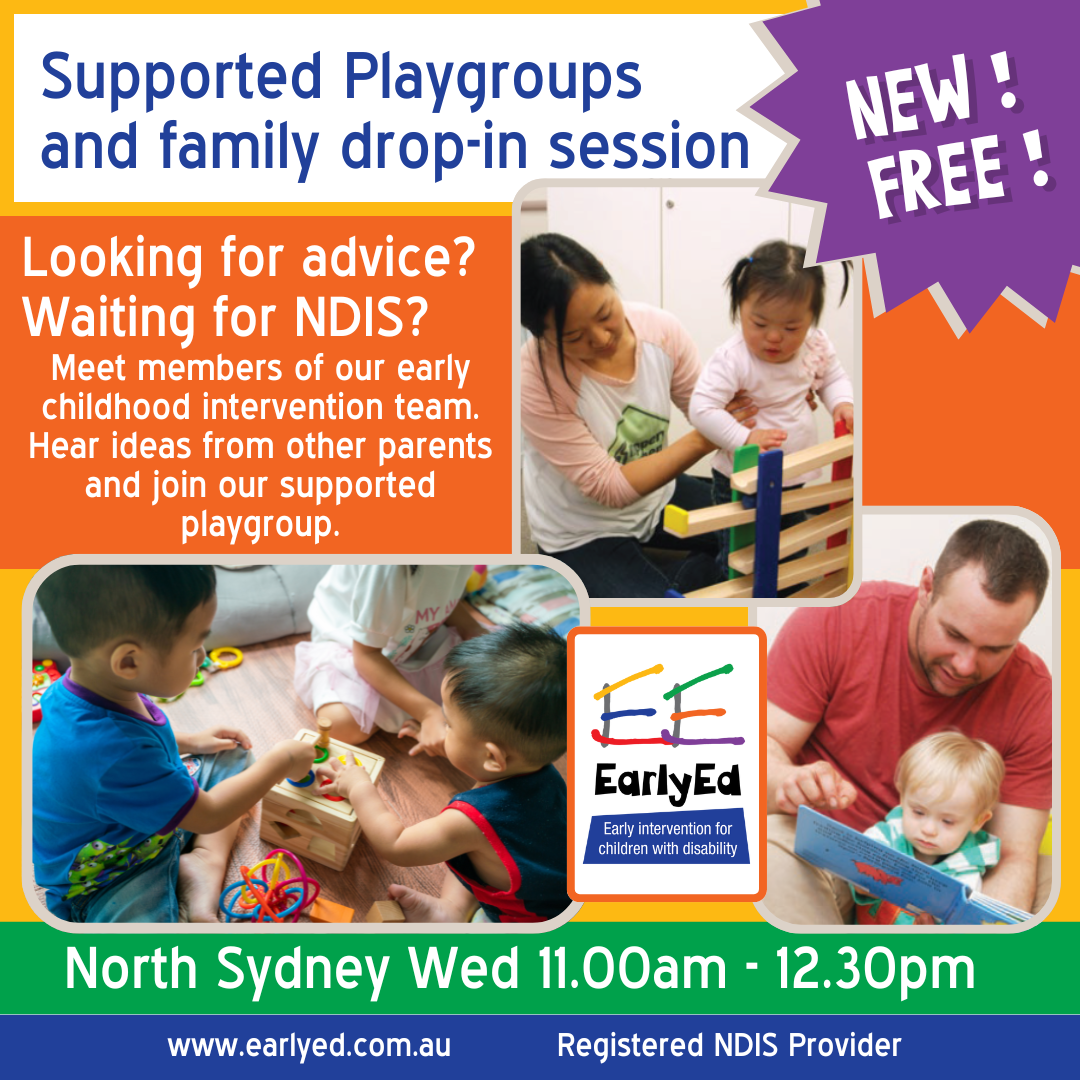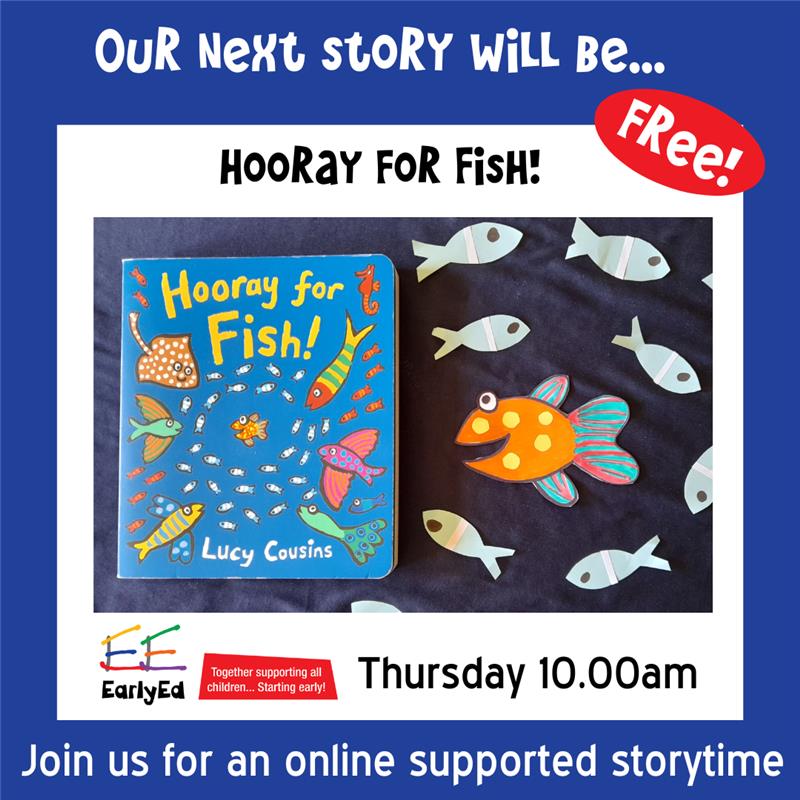Feeding/Mealtime Service



Mealtimes can be a time of connection and nourishment—but for many families, they can become a source of stress and worry.
When would a child need support with feeding or meal time management?
Children with feeding and swallowing difficulties may present with a diverse range of symptoms that require and benefit from mealtime management supports.
Children may have difficulty
- sucking, chewing,
- moving food and fluid around the mouth,
- managing their saliva or swallowing.
- transitioning between textures,
- using equipment such as bottles, cups or cutlery, or
- picking food up, or
- keeping their lips closed to keep food in their mouths.
Some children may have restricted food and fluid intake and may present as picky eaters or fussy eaters.
It can be helpful to address concerns about how your child is managing with their eating and drinking early before the normal stages of fussy eating start.
Some children may have restricted food and fluid intake and may present as picky eaters or fussy eaters.
These can all lead to added family mealtime stress, challenging behaviours around food and mealtimes, limit families shared mealtime experiences and limit the family’s opportunities for enjoying social activities and events.
At EarlyEd, our trained Speech Pathologists will conduct a comprehensive assessment as part of an experienced feeding team which may include an occupational therapist and/or physiotherapist. We also work closely with dieticians, dentists, behaviour support practitioners and other professionals.
Feeding challenges can be stressful for children and parents
These can all lead to:
- added family mealtime stress,
- challenging behaviours around food and mealtimes,
- limit family’s shared mealtime experiences
- limit opportunities for family’s to take part in and enjoy social activities / events and
- make it hard for children to be part of social activities with friends.
Being independent with their feeding is something that children will develop over time. It becomes more important as the time comes for them to go to childcare / preschool and school.
Health and medical concerns
Parents can be concerned about their children’s food intake as well. This may lead to concerns about the child’s weight gain and growth.
Your Feeding and Mealtime Management Team
All these are areas that different members of EarlyEd’s feeding team can support you with. At EarlyEd, our speech pathologists have specific training and experience with assessment of feeding and therapy supports that will support their child’s feeding management.
The comprehensive assessment is best done as part of an experienced feeding team which may include an occupational therapist and/or physiotherapist. We also work closely with dieticians, dentists, behaviour support practitioners and other professionals.

Who Do We Help
Children of all ages can have feeding, swallowing and / or mealtime difficulties for many different reasons. We support families and their children, aged between 0 – 12 years, who may be finding eating and drinking challenging.
Babies and toddlers (0 – 3 yrs) can have:
- Breastfeeding or bottle feeding difficulties
- Delays in moving through different food textures when weaning
- Difficulties learning to chew
- Coughing, gagging or choking during or after eating and drinking
- Picky eating
- Poor appetite or grazing between meals
- Lengthy mealtimes
- Stressful mealtimes
- Tube feeding challenges
Older children (3 – 12 years), can have:
- Chewing difficulties
- Swallowing difficulties
- Sensory challenges around the taste, look or feel of different foods
- Food or feeding refusal
- Restricted diets
- Coughing, gagging or choking during or after eating and drinking
- Stressful mealtimes or disrupted family mealtimes
- Tube feeding challenges
Feeding and mealtimes can also be tricky for children with specific diagnosis or conditions. Some of these may include:
- Cleft Lip and Palate
- Autism Spectrum Disorder
- Down Syndrome
- Cerebral Palsy
- Heart related conditions
- Respiration related conditions
- Digestion related conditions
What We Do
Early Intervention
- Start right
- Be Informed
- Check in with the team if unsure
Assessment
- Joint Clinical Feeding Assessment
- Feeding Equipment Support (Seating, Eating Utensils)
Therapy
Centre / Home / Pre – School / School / Telehealth
Reviews
NDIS Mealtime Management Plans
Parent Information Talks
- MyTime
- Webinar
Childcare/Preschool talks
- For staff
- Innovative solutions funding
How Do We Work
We offer a warm, responsive feeding approach to mealtime support which is family-centred, child-led, grounded in evidence-based practice and tailored to each child’s unique needs. Our services include:
- Comprehensive feeding assessments to understand your child’s strengths, challenges, and underlying factors
- Individualised therapy plans that support skill development, sensory regulation, and positive mealtime behaviours
- Parent coaching and education to build confidence and equip families with practical strategies
- Collaborative care with other health professionals, educators, and support networks to ensure holistic support
- Support for transitions—whether it’s starting solids, moving to table foods, or navigating feeding in childcare or school settings
Feeding Approach
Our feeding therapists are trained in these evidence-based practices:
- Responsive Feeding Approach
- SOS Approach
- Tube Feeding
- Specific Disability / Diagnosis: Down Syndrome, Cerebral Palsy, Fetal Alcohol Syndrome, Cleft Palate, Prematurity
Early Childhood Intervention Best Practices
- Family centred
- Child-led
- Goal focussed
- Supporting children in their home, childcare/ preschools and schools
Team Around your Child
- EarlyEd recognises We believe in the value of team. We work collaboratively with your child’s wider team to ensure that all areas of concern are identified and addressed.
- Your early childhood intervention could involve some or all of these professionals
– Speech Pathologist
– Occupational Therapist
– Physiotherapist
– Behaviour Support practitioner
– Specialist Educator
– Dietician
– Medical Team
Worries / Red Flags
How do you know if you should be worried?
- Battleground mealtimes
- Lengthy meal times
- Restricted diets
- Selective eaters
- Losing weight
- Unexplained chest illnesses
- Negative responses to food
- Sensory sensitivities
- Developmentally behind peers for feeding or generally
- Specified Disability / Diagnosis
- Coughing, gagging, choking during or after eating and / or drinking
- Vomiting during or after eating and / or drinking
Dysphagia refers to difficulty with feeding and/or swallowing. It is a symptom, not a disease. Oral phase dysphagia refers to problems using the mouth, lips and tongue to control food or liquid. Pharyngeal dysphagia refers to problems in the throat when swallowing.
Dysphagia may lead to aspiration (where food or liquid gets into the lungs). This may present as recurrent pneumonia or chest infections requiring antibiotics.
Dysphagia can affect a person at any age − from infants to the elderly.








